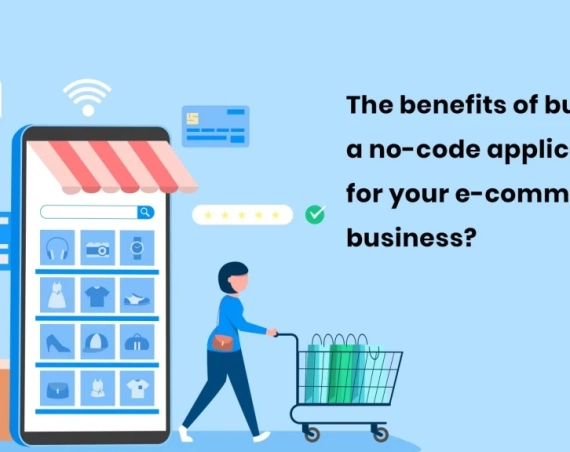
Today, mobile internet is a necessity rather than a luxury for mobile users. Consequently, the mobile app market has grown exponentially in recent years. To gain visibility for your mobile app in the current market is no easy task. So, if you plan to start an app business, make sure you take a systematic and well-planned approach towards the app development and marketing process.
Here are 10 steps that you must take to start an App Business:
- Ideation
Like any other business, a successful app rests on the foundation of an idea. Sure, you can say the best ideas don’t work without enough efforts and execution, but the right idea with even an iota of research upfront will only strengthen the potential of your endeavor and save you a lot of pain down the line.
- Market Research
Once the idea has materialized, gauge the market and start with a well-planned market research. Perform market analysis to understand the supply/demand situation, potential competitors that might already exist in the market and conduct surveys to understand the current positioning and level of execution required to effectively gain customer base from the current market. Studying the apps online that can potentially be your competition will help you estimate your application cost, target audience, development codes, market research tools, and so much more. You can also analyze the current trends, understand what your target audience wants right now and get it in sync with your app idea.
Here are 5 features that you can analyze when studying your competitors:
- Design: Design is one of the most critical ingredients for a successful app as it creates an instant impact on the mind of the user before he even uses it. Follow UI guidelines and design keeping user perspective in mind rather than your databases or programming limitations.
- Scalability: In these constantly changing conditions where new apps and platforms are developed and updated, you must make sure your app is adaptable to these changes. Choose a platform that allows changes and can be modified based on users’ feedback.
- Marketing: Monitor marketing techniques and channels used online, by your potential competitors. Lots of time and money need to be invested towards advertisement to reach out to the wide array of audience.
- Unique Value: Understand the value that apps provide when you analyze them. Do they offer something unique or help users deal with daily chores? You can sell your app to the users deftly if it offers a unique value that would make it stand out from the crowd.
- Partners: Research on technologies your potential competitors may have worked on and get more information on companies they partnered up with to acquire the services of these techs. It is imperative that right partners are chosen to develop an app that is bug-free and highly efficient.
- Platform Choice
Based on the latest numbers provided by Gartner, 432 million smartphones were sold in the last quarter of 2016, out of which 352 million ran Android (81.7 percent) and 77 million ran iOS (17.9 percent). It is clear to see that Android and iOS rule the global smartphone market. Android caters to the largest audience and its open source nature facilitates low investment increasing the probability of gaining high ROI. It also helps in easy customization of mobile apps according to your business requirements. iOS is a closed platform with strict guidelines that need to be followed faithfully and offers little room for customization. Apple app store tends to have higher prices, so if it comes to monetization strategy, iOS could be a good choice. Identify which platform is right for your business based on the presence of target audience, customization flexibility, monetization benefits, and choose accordingly.
- Development
Once all the research is completed, and platform most suited to your business is selected, development phase begins. You’ll need to assemble a team of developers, coders, designers, copywriters and even photographers.
Most companies gain services of developers through following channels:
- Offshore Freelancers
- Permanent Hires
- Developer Company/ Partner
Hiring freelancers may be more cost-effective; however, their work could possibly take a long time and the lack of coordination could result in an app that is buggy or even worse, unfinished. With permanent hires, you can gain specialists even if they are comparatively costly. They can also provide support once the app is finished – something that you might not get with freelancers. Working with developer companies can be best for your business in the long run as they offer a specialized team and long-time support. Also, your app may require further development, updating and bug-fixing in future, so having them as a partner will definitely help your app as well as your business.
- Business Plan
Once the development commences, focus on formulating a business plan with short-term and long-term targets. A business plan can consist of success metrics over the short and long period with milestones, financial plan, SWOT analysis, exit plan, etc. The app business can be really dynamic and employing strategies that fulfill the short-term targets while remaining in sync with the overall long-term business plan will keep your business sustainable to competition and market changes.
- Investment
Once a business plan has been formulated, you’ll know how much capital you need to kick start your app in the market. Finding an investment source is never too easy, but you can employ the following ways to raise the funds for your app business:
- Loans: You can get business loans from banks or other financial institutions if you can convince them with your idea. A proper business plan with market research and revenue projections is necessary in this case.
- Crowdfunding: Using crowdfunding sites like Kickstarter.com or GoFundMe can be an effective way to raise funds at low cost. You can set a goal regarding how much money you want to raise over time and use the help of your friends, families, and strangers to raise funds for your business.
- Find a partner: Showcase your idea through a prototype or a beta version of your app to attract angel or seed funding.
There are much more ways to raise capital for your business.
- Beta Testing and Feedback
Instead of diving straight into the app market, it is highly recommended to create an interactive prototype or a beta version of your app. Get it tested by investors and users to gain their feedback. Beta testing is one of the most important phases of app development cycle. Quality, performance, stability, and ultimately the user experience can be improved by beta testing.
- App Monetization
Once you’ve finally developed an awesome mobile app for your business, it’s time to turn it into a profit-generating machine.
Here are few ways you can monetize your app:
- Advertisement: Gain monetary benefits by utilizing native ads or by allowing brands to displays their advertisements within your app. The ads vary in size, position and even form such as static banner images or videos. When leads are converted through ads or a person/company earns revenue from running a campaign through your app, you earn incentive as an affiliate because of app ownership. You can connect with advertising networks like Google’s AdMob, Unity Ads, and Klip.
- In-app Purchases: The infamous in-app purchases are still one of the most effective monetization strategies, especially utilized by many (so called) free apps. Many mobile game development companies design game apps that utilize this strategy by offering access to a locked feature in a game by making a small purchase. Apps that keep users glued for hours can effectively use this strategy.
- Direct Selling: Your app can sell products or services as well, to generate revenue.
- Pro-version: You can offer your app as two versions: Free Version and Paid Version. Paid version can contain additional features or provide an ad-free access to the users that may not be available in free version.
- App Marketing
Once your app is out and running, it’s vital you make sure people know you are in the market. The competition is harsh and to get ahead of the herd, you must invest wisely into advertising. A large number of audience is present on Facebook, Twitter, Instagram, Youtube and other platforms. Promote your app on these platforms to connect with subscribers and users online. You can also create a website and utilize resources like blogs, reviews, etc.
- Improvement
No matter how perfect you believe your app is, but there is always room for improvement. With increasing competition and constantly updated platforms, you must always look to improve user experience, add new features and keep in flow with the changing tech continuously.
Conclusion
So, as you can see, starting and running an app over a long term takes lots of efforts and commitment. If you’re looking to develop an app for your business, consider working with a mobile application development company, equipped with the right tools to deliver exactly what you aim for.
Potenza Global Solutions is a Mobile application development company that develops native, hybrid and web apps for multiple platforms catering to clients in numerous sectors.


